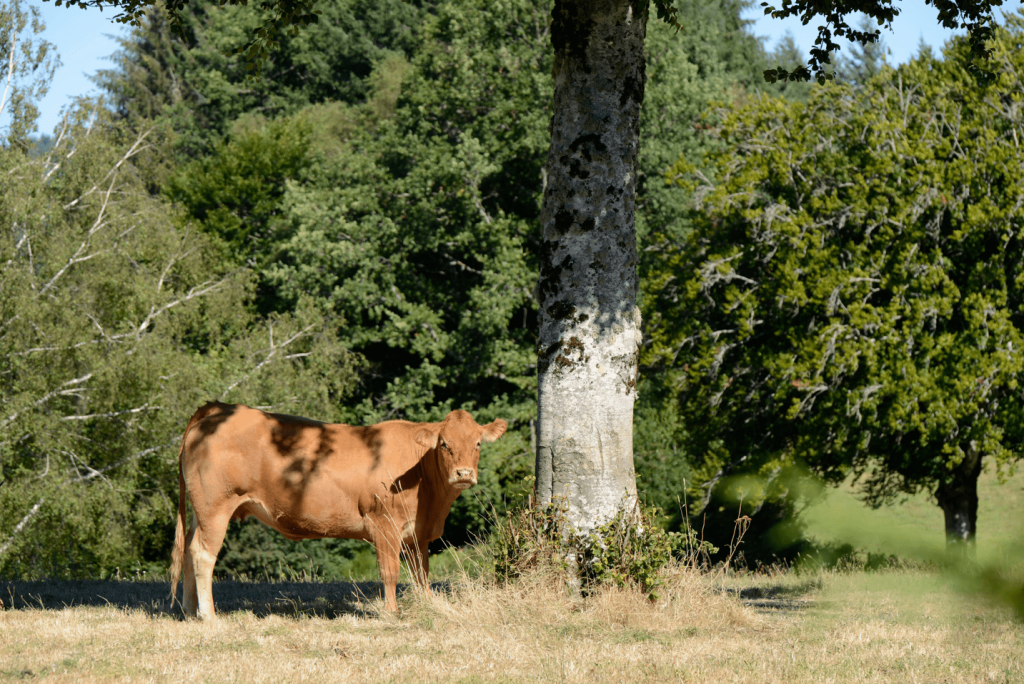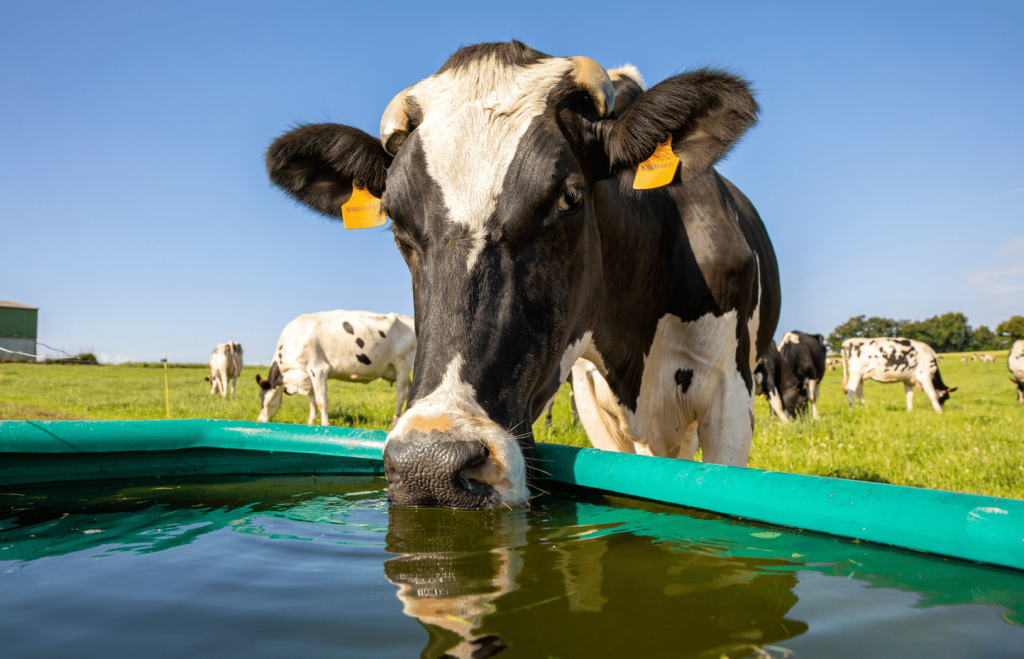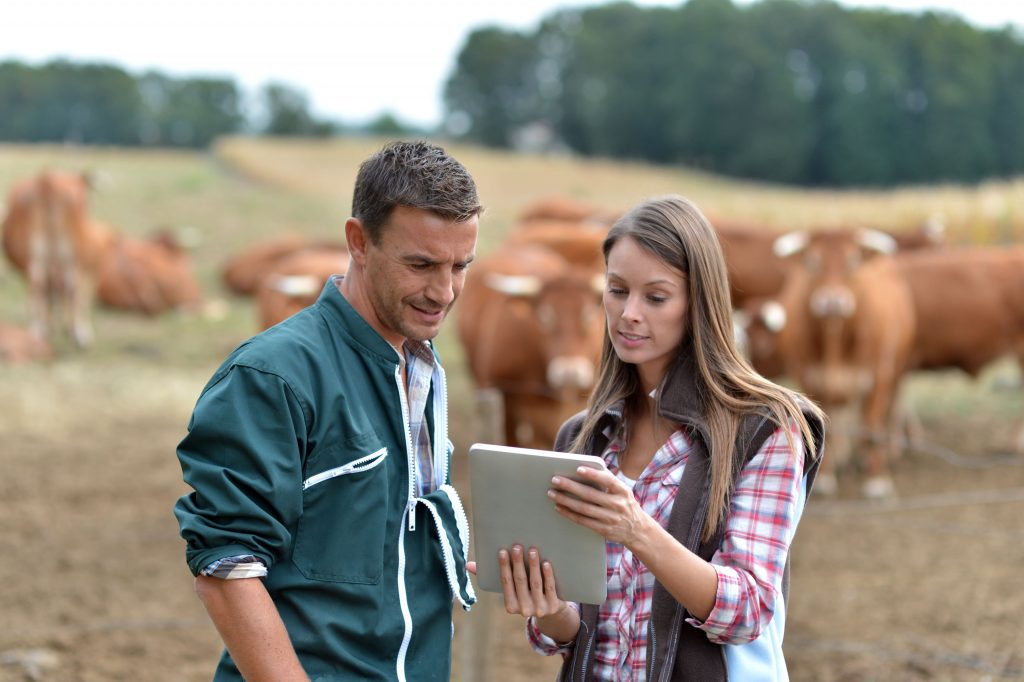Heat stress is a common problem for ruminants, including dairy cows, suckler cows, cattle, calves, etc. It is caused by high temperatures during the summer months, which can have a negative impact on their health and well-being. In this article, we will look at the effects of heat stress on ruminants and how to limit its consequences.
The effects of heat stress on ruminants
Heat stress occurs when the ambient temperature is higher than the normal body temperature of the animals, which is about 38.5°C for ruminants. During hot weather, the body temperature of ruminants can increase, which can cause physiological distress. Symptoms of heat stress include increased respiratory and heart rates, decreased milk production, decreased appetite, decreased fertility and increased mortality. Discover our Thermo®Plus solution for your ruminants during periods of high heat.

Signs of heat stress in ruminants
Dairy cows are particularly sensitive to heat stress because their milk production is linked to their water and feed intake. During hot weather, dairy cows may reduce their water and feed intake, which can result in lower milk production. In addition, heat stress can affect milk quality, especially fat content and somatic cell count.
The effects of heat stress in ruminants
Suckling cows and cattle are also vulnerable to heat stress. In hot weather, they may have difficulty maintaining body weight, which can affect their long-term health. Calves are also sensitive to heat stress, as they need a constant body temperature to develop properly. During hot weather, calves may have problems with digestion and growth.
Provide clean, cool water to limit heat stress
There are several ways to combat heat stress in ruminant livestock. First, it is important to provide sufficient clean, fresh water. Ruminants require a large amount of water to compensate for water loss through transpiration and respiration. Therefore, it is essential to ensure that animals have easy access to fresh, clean water throughout the day.

Provide shade to reduce the risk of heat stress
In addition, it is important to provide shade for the animals. Ruminants can protect themselves from the sun by taking shelter under trees or shelters. Shelters can also provide cool air to help maintain normal body temperature. It is also advisable to reduce stocking density during the summer months to allow for better air circulation.
Adapted diet to help fight against heat stress
Ruminants can also be provided with a suitable diet for heat stress. Ruminants need a balanced diet to maintain their health and well-being. During hot weather, it is important to provide feeds rich in water and electrolytes to help maintain hydration. Salt supplements can also be added to their diet. The goal is to compensate for electrolyte losses due to sweating.
Limit physical activity during the hottest part of the day
Finally, it is recommended to limit physical activity during the hottest part of the day. Ruminants can tire more quickly in hot weather, which can lead to health problems. Therefore, it is best to schedule activities such as milking, feeding and moving animals early in the morning or late in the evening when temperatures are cooler.

Taking appropriate measures during heat waves in ruminants
In conclusion, heat stress is a common problem for ruminant livestock, especially during the summer months. It is important to take measures to limit heat stress in dairy cows, suckler cows, cattle and calves to maintain their health and welfare. Providing clean, cool water, shade, proper nutrition and limiting physical activity during the hottest hours is important. All these actions can help reduce the risk of heat stress in ruminants. Farmers can ensure that their animals remain healthy and productive throughout the year.



